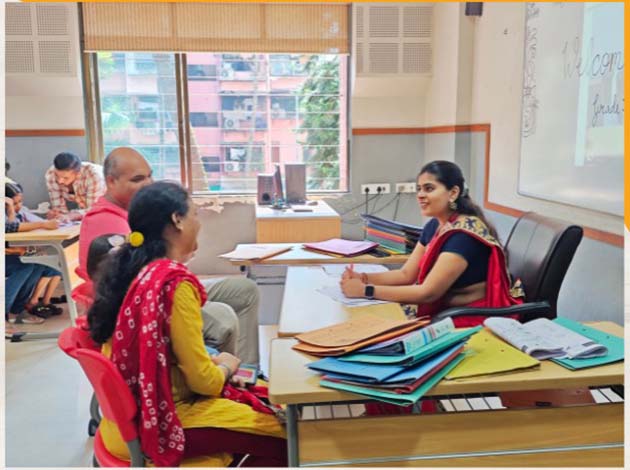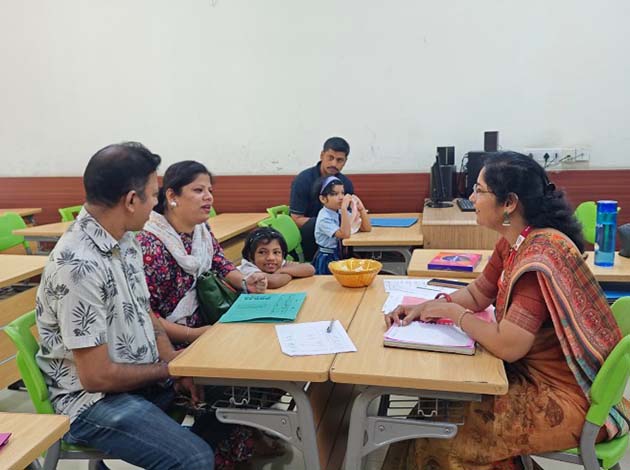Parent-teacher meetings (PTMs) play a vital role in the educational journey of students. These meetings serve as a bridge between home and school, fostering collaboration and communication that directly impacts a child’s learning and development
Identifies Learning Needs
- Early Detection of Issues: PTMs allow teachers to alert parents about any academic or behavioral issues early on. This early intervention can prevent minor issues from becoming major obstacles in the student’s progress.
- Tailored Support: Understanding a child’s strengths and weaknesses helps both teachers and parents to tailor their support strategies. They can work together to provide the necessary resources or guidance to address any specific learning needs.
Encourages Parental Involvement
- Active Participation: When parents are involved in their child’s education, it positively influences the child’s attitude toward learning and boosts their confidence. PTMs encourage parents to take an active role in their child’s schooling.
- Building a Support System: By attending PTMs, parents show their commitment to their child’s education, which helps in building a strong support system at home and school.
Strengthens Parent-Teacher Relationships
- Trust Building: Regular meetings help establish trust and mutual respect between parents and teachers. A strong relationship encourages collaboration and better understanding.
- Partnership in Education: Teachers and parents working as partners can develop more effective strategies to support the child, ensuring that efforts at home and school are aligned.
Discusses Student Behavior and Social Skills
- Behavioral Insights: PTMs provide an opportunity for teachers to discuss the child’s behavior in a school setting, including interactions with peers and participation in class activities.
- Social Development: Parents can share insights about their child’s social behavior at home, helping teachers understand the student’s overall social development and address any issues if needed.





